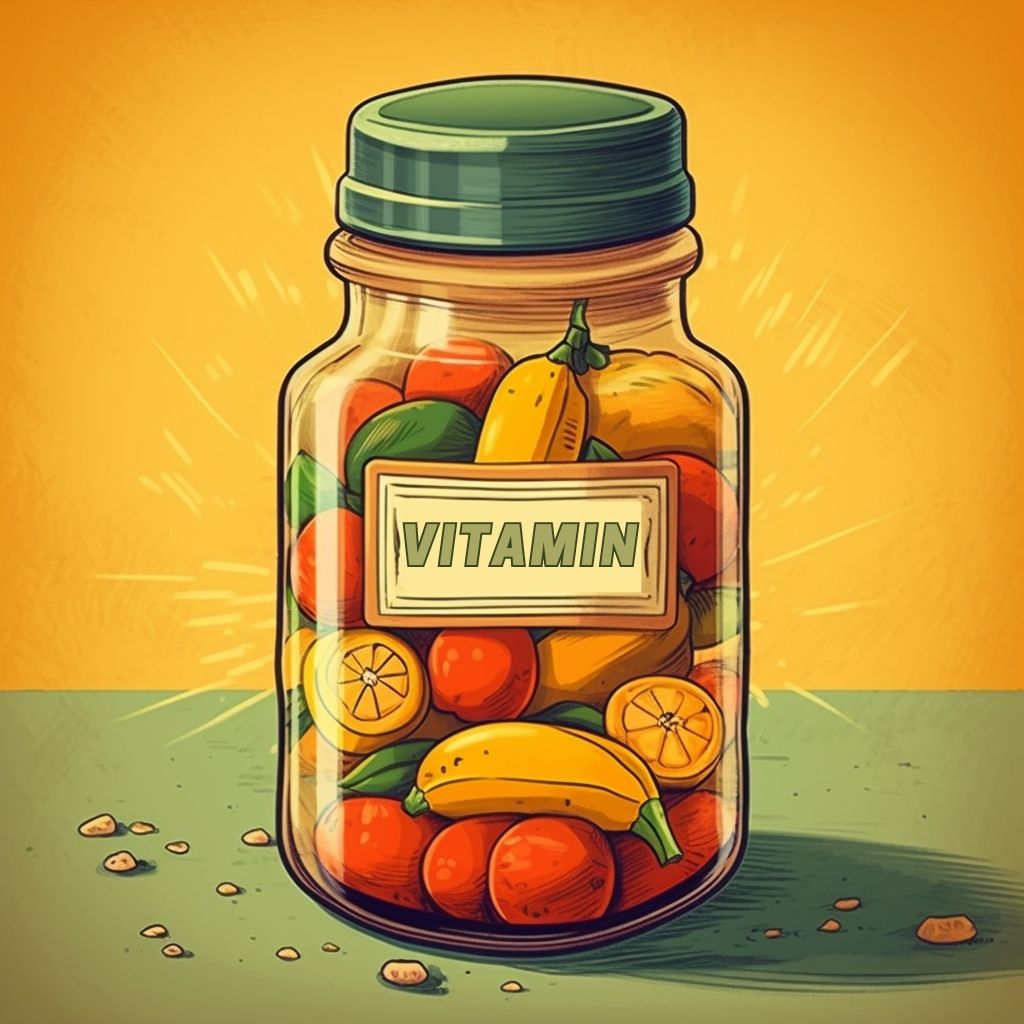Vitamins and Depression: Does Vitamins Help with Depression?

Depression, a widespread mental health concern, affects millions globally. As traditional treatments have limitations, exploring alternative options is crucial. Vitamins’ potential impact on mental health has garnered attention, prompting research into their effectiveness as complementary treatments.
This article delves into the connection between vitamins and depression to uncover the role these essential nutrients might play in alleviating depressive symptoms.
Understanding Depression
Depression, a prevalent and intricate mental health condition, transcends mere feelings of sadness. It encompasses a complex web of emotions, thoughts, and physical sensations that can disrupt daily life and well-being.
Depression encompasses a range of symptoms and underlying causes that impact individuals’ emotional and physical well-being.
Symptoms
Here are some of the most common depression symptoms:

- Persistent Low Mood: Overwhelming feelings of sadness or emptiness that endure over time.
- Loss of Interest: Diminished enjoyment or interest in once-enjoyable activities.
- Changes in Appetite and Sleep: Irregular eating patterns and disrupted sleep routines.
- Fatigue and Low Energy: A pervasive lack of energy, even for simple tasks.
- Difficulty Concentrating: Inability to focus or make decisions easily.
- Physical Discomfort: Unexplained aches, pains, or gastrointestinal issues.
Causes
- Genetic Predisposition: Family history of depression increases vulnerability.
- Neurochemical Imbalances: Altered brain chemistry involving neurotransmitters like serotonin.
- Environmental Stressors: Trauma, loss, or chronic stress triggering or worsening depressive episodes.
Understanding these symptoms and causes is crucial for considering alternative treatments, such as exploring the potential role of vitamins in managing depression.
Vitamins and Their Role in Mental Health

Vitamins are fundamental to holistic health, supporting various bodily functions essential for overall well-being. Nutrition’s impact extends beyond physical health, profoundly influencing mental well-being as well. As the understanding of the mind-body connection grows, researchers are exploring how vitamins might contribute to alleviating depression and promoting mental resilience.
Essential Vitamins and Holistic Health
Vitamins are organic compounds vital for optimal bodily functions. They participate in energy metabolism, cellular repair, and immune system maintenance. These micronutrients are obtained through diet and play a pivotal role in maintaining physical health, but their influence on mental health is increasingly recognized.
Nutrition’s Influence on Mental Health
Emerging research underscores the significance of a balanced diet in mental well-being. Nutrient deficiencies have been linked to increased risk of mental health disorders, including depression. Poor nutrition can disrupt brain chemistry and neural pathways, potentially contributing to mood disturbances. Conversely, adequate nutrient intake supports brain function and emotional stability.
| Read More: Depression and Nutrition: Foods That Can Support Mental Well-being
Vitamins as Potential Mood Enhancers
Certain vitamins are being investigated for their potential role in mitigating depressive symptoms. For instance, vitamin D’s influence on serotonin production and its receptors suggests a connection to mood regulation. Vitamin B complex, including B6, B9 (folate), and B12, is linked to neurotransmitter synthesis and may impact mood. Omega-3 fatty acids, while not vitamins are essential nutrients found in some foods and supplements that are also being studied for their antidepressant potential.
By delving into the mechanisms by which vitamins impact mental health, we can uncover potential pathways for improving depressive symptoms and enhancing overall emotional well-being.
Vitamin D and Depression
Vitamin D, often dubbed the “sunshine vitamin,” is integral to maintaining bone health, immune function, and overall well-being. It is synthesized in the skin upon exposure to sunlight and can also be obtained from certain foods and supplements. However, its importance extends beyond physical health, with mounting evidence suggesting a potential link between vitamin D and mental well-being.
Multiple studies have explored the association between low vitamin D levels and an increased risk of depression. Research indicates that individuals with depression are more likely to have insufficient vitamin D levels. In a systematic review and meta-analysis, Gowda et al. (2015) found a significant correlation between low vitamin D levels and depressive symptoms.
Vitamin D receptors are present in regions of the brain associated with mood regulation. This suggests that vitamin D may influence mood by interacting with neural pathways and neurotransmitter systems. One proposed mechanism is the role of vitamin D in regulating serotonin synthesis and release. Serotonin, known as the “feel-good” neurotransmitter, plays a pivotal role in mood regulation.
B Vitamins and Depression
B vitamins, a group of water-soluble nutrients, play pivotal roles in various bodily functions, including energy production, DNA synthesis, and nerve function. Specific B vitamins, such as B6 (pyridoxine), B9 (folate), and B12 (cobalamin), are of interest in the context of depression due to their involvement in neurotransmitter synthesis and overall neurological health.
Research has spotlighted the potential impact of B vitamins on depression. A study by Almeida et al. (2008) demonstrated an association between low folate levels and a higher risk of depressive symptoms. Similarly, studies have indicated a potential link between low vitamin B12 levels and an increased risk of depression, particularly in older adults. However, more rigorous studies are needed to establish a clear causal relationship.
B vitamins are intricately tied to neurotransmitter metabolism. For instance, vitamin B6 is a cofactor in the synthesis of serotonin, dopamine, and gamma-aminobutyric acid (GABA), which all contribute to mood regulation. Folate is crucial for DNA methylation and homocysteine metabolism, both of which can impact neurotransmitter production and brain function. Vitamin B12 is essential for maintaining the myelin sheath that surrounds nerve cells, promoting efficient neural transmission.
Omega-3 Fatty Acids and Mood
Omega-3 fatty acids, a type of polyunsaturated fat, are crucial components of cell membranes and play a vital role in brain health. The two primary types, eicosapentaenoic acid (EPA) and docosahexaenoic acid (DHA), are obtained through dietary sources like fatty fish, flaxseeds, and walnuts. Their presence in neural membranes supports communication between brain cells and influences neurotransmitter pathways.
Research suggests that omega-3 fatty acids might have anti-depressant effects. Studies have found associations between higher omega-3 intake and reduced risk of depression. Meta-analyses, such as Su et al. (2019), have reported significant improvements in depressive symptoms with omega-3 supplementation. Notably, these effects are more prominent in individuals with more severe depressive symptoms.
Omega-3s are noted for their potential to reduce inflammation, a factor implicated in depression. Chronic inflammation can disrupt neural circuits involved in mood regulation and contribute to depressive symptoms. Omega-3s counteract inflammation by influencing immune responses and modulating inflammatory signaling pathways. Additionally, these fatty acids support the production of neuroprotective compounds that enhance neural function.
Antioxidant Vitamins (C and E) and Their Impact
Antioxidants are crucial defenders against oxidative stress, a process in which unstable molecules known as free radicals damage cells and DNA. Vitamins C and E are potent antioxidants that neutralize these harmful molecules, safeguarding cells from potential harm. These vitamins are obtained through diet and play a crucial role in overall health, including their potential impact on mental well-being.
Recent studies have investigated the potential link between antioxidant vitamins and depression. A meta-analysis by Ribeiro et al. (2017) found that vitamin C supplementation was associated with a significant reduction in depressive symptoms. Additionally, research suggests that individuals with higher dietary intake of vitamin E exhibit a lower risk of depression. However, more research is needed to elucidate the exact mechanisms and establish consistent findings.
Oxidative stress, resulting from an imbalance between free radicals and antioxidants, has been implicated in the pathophysiology of depression. Antioxidant vitamins like C and E could potentially counteract oxidative stress and its detrimental effects on brain function. By neutralizing free radicals, these vitamins might contribute to reduced inflammation and improved neuronal health, which are key factors in maintaining mental well-being.
Magnesium and its Calming Effects
Magnesium, an essential mineral, plays a fundamental role in nerve function, muscle contraction, and overall relaxation. It is a cofactor in hundreds of enzymatic reactions within the body, including those involved in neurotransmitter synthesis and receptor function. This mineral is integral to maintaining a balanced nervous system, which is essential for managing stress and promoting a sense of calmness.
Research has explored magnesium’s potential in reducing generalized anxiety disorder and depression symptoms. A randomized controlled trial by Tarleton et al. (2017) indicated that magnesium supplementation was associated with a significant reduction in symptoms of depression. Magnesium’s mechanism may involve its ability to regulate the hypothalamic-pituitary-adrenal (HPA) axis, a crucial system involved in the body’s stress response.
Magnesium’s influence on mood stability can be attributed to its impact on various neurotransmitters, including GABA and serotonin. GABA is an inhibitory neurotransmitter that promotes relaxation and counteracts anxiety. Serotonin, often referred to as the “feel-good” neurotransmitter, plays a key role in mood regulation. Magnesium’s involvement in these systems underscores its potential to promote emotional well-being.
Unlock the vital connection:
Dive into how vitamins influence depression, then explore its impact on work performance in our “Depression and Work Performance” blog post.
Illuminate the path to a healthier mind and a more productive workplace.
Balanced Nutrition and Mental Health
A well-rounded diet is a cornerstone of optimal mental well-being. Nutrient-rich foods provide essential vitamins, minerals, and other compounds necessary for brain function, neurotransmitter production, and overall emotional stability. Incorporating a variety of nutrient-dense foods supports the body’s ability to cope with stress, manage mood, and maintain cognitive clarity.

Consulting Healthcare Professionals
Before making significant dietary changes, it’s crucial to seek guidance from healthcare professionals. Registered dietitians, nutritionists, and mental health experts can help tailor dietary choices to individual needs and circumstances. They can provide personalized recommendations that align with specific health goals and address any potential nutrient deficiencies.
Risks of Excessive Vitamin Supplementation
While vitamins play a vital role in mental health, excessive supplementation can have adverse effects. Overconsumption of certain vitamins, such as fat-soluble vitamins (A, D, E, K), can lead to toxicity. For instance, excessive vitamin D intake can cause hypercalcemia, leading to symptoms like nausea and weakness. Striking a balance between dietary intake and supplementation is key to avoiding potential risks.
A holistic approach to mental well-being involves not only considering nutritional factors but also addressing other aspects of self-care, such as physical activity, sleep, and stress management. By nurturing a comprehensive wellness strategy, individuals can empower themselves to achieve better mental health outcomes.
| Suggestion: Art Therapy for Depression: Unleashing Creativity for Healing and Well-Being
HealWiser’s Last Piece of Advice
Vitamins, integral to overall well-being, exhibit intriguing links to mood regulation and depressive symptoms. From vitamin D’s role in mood-enhancing mechanisms to B vitamins’ impact on neurotransmitter synthesis, the potential for nutritional interventions in mental health is captivating. However, the relationship between vitamins and depression is intricate and requires more research to establish causal links and recommend precise interventions.
As we continue our quest for effective treatments, let’s embrace a holistic approach, encompassing nutrition, lifestyle, and professional guidance, to foster mental wellness.






